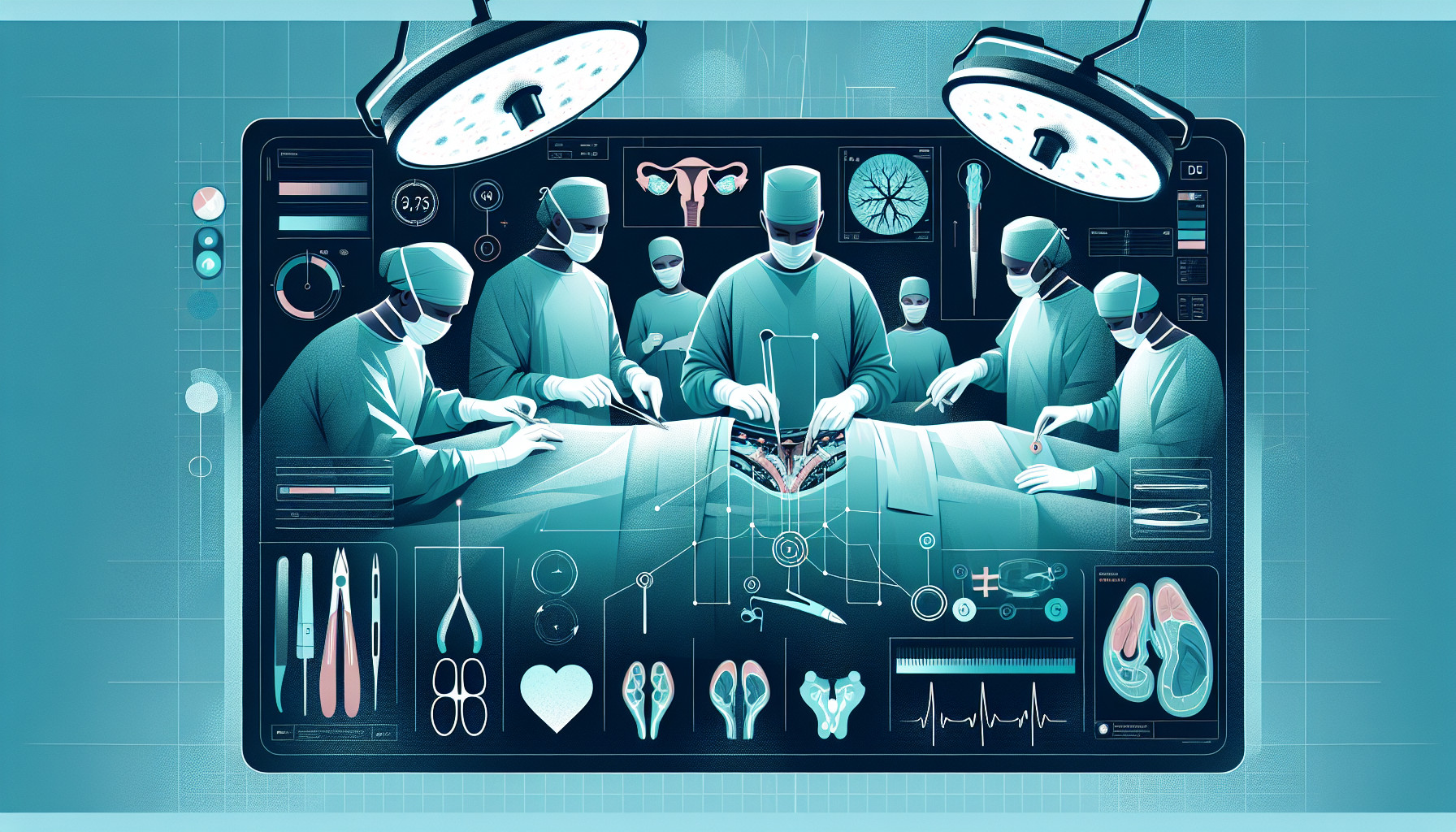Our Summary
This research was conducted to determine if it was possible to predict the need for major vascular surgery (MVS) — specifically, procedures involving the large veins and arteries, in patients who have undergone a specific type of surgery for testicular cancer. The study analysed data from 78 patients who had received a type of chemotherapy for a certain type of testicular cancer and then underwent a procedure to remove lymph nodes in the abdomen.
The researchers found that certain characteristics, including the size and volume of the tumor, the angle of contact between the tumor and the two major blood vessels in the abdomen, the severity of the patient’s cancer according to a specific scoring system (IGCCCG), and other factors could help predict whether the patient would need MVS.
Using these factors, they developed a model that was able to correctly identify whether a patient would need MVS in 9 out of 10 cases. This could potentially help doctors plan for the need for additional surgery more effectively.
FAQs
- What was the purpose of the research conducted on testicular surgery?
- What factors were found to help predict if a patient would need major vascular surgery after testicular cancer surgery?
- How accurate is the model developed by the researchers in predicting the need for major vascular surgery?
Doctor’s Tip
One helpful tip that a doctor might tell a patient about testicular surgery is to follow post-operative care instructions carefully to ensure proper healing and reduce the risk of complications. This may include avoiding strenuous activity, keeping the surgical site clean and dry, taking prescribed medications as directed, and attending follow-up appointments as scheduled. It is also important to report any concerning symptoms, such as increased pain, swelling, or fever, to your healthcare provider promptly. By following these guidelines, patients can help support their recovery and achieve the best possible outcome from their surgery.
Suitable For
Typically, patients who have undergone chemotherapy for testicular cancer and then require a procedure to remove lymph nodes in the abdomen may be recommended for testicular surgery if they are at risk of needing major vascular surgery. Characteristics such as tumor size and volume, the angle of contact between the tumor and major blood vessels, cancer severity, and other factors can help predict the need for MVS in these patients.
Timeline
Before testicular surgery:
- Patient undergoes chemotherapy for testicular cancer
- Patient undergoes a procedure to remove lymph nodes in the abdomen
After testicular surgery:
- Researchers analyse data from 78 patients who underwent chemotherapy and lymph node removal
- Characteristics such as tumor size, tumor contact with major blood vessels, cancer severity, and other factors are analyzed
- A predictive model is developed to determine the need for major vascular surgery (MVS) in patients
- Model correctly identifies the need for MVS in 9 out of 10 cases, potentially helping doctors plan for additional surgery more effectively
What to Ask Your Doctor
- What is the purpose of the testicular surgery I will be undergoing?
- What are the potential risks and complications associated with this surgery?
- How long is the recovery period expected to be?
- Will I need to undergo any additional procedures or surgeries following this surgery?
- How will this surgery affect my fertility or sexual function?
- Will I need to follow a specific post-operative care plan or take any medications?
- What are the chances of the cancer returning after this surgery?
- Are there any lifestyle changes or precautions I should take after the surgery?
- How often will I need follow-up appointments or monitoring after the surgery?
- Are there any signs or symptoms I should watch out for that may indicate a complication after the surgery?
Reference
Authors: Nini A, Boschheidgen M, Hiester A, Winter C, Antoch G, Schimmöller L, Albers P. Journal: World J Urol. 2022 Feb;40(2):349-354. doi: 10.1007/s00345-021-03870-8. Epub 2021 Nov 3. PMID: 34731264
